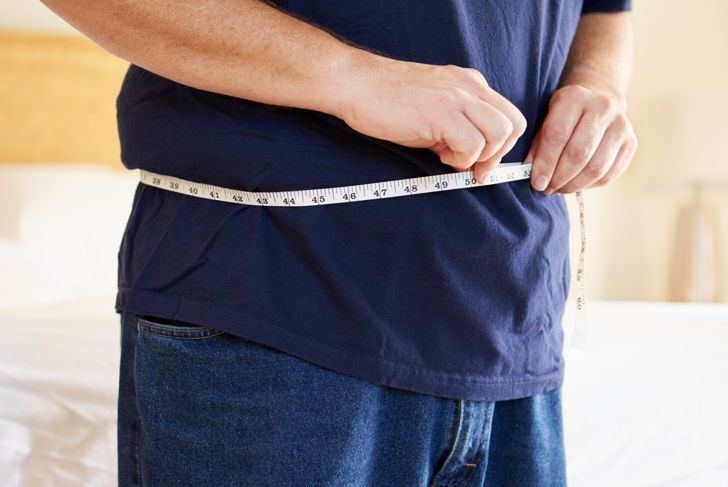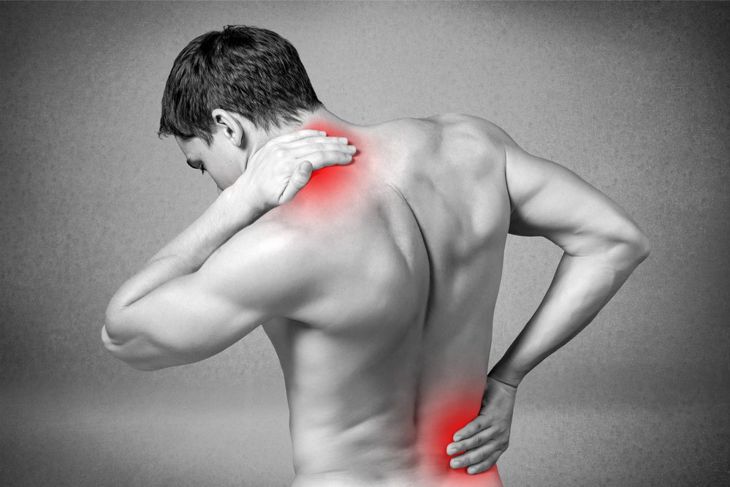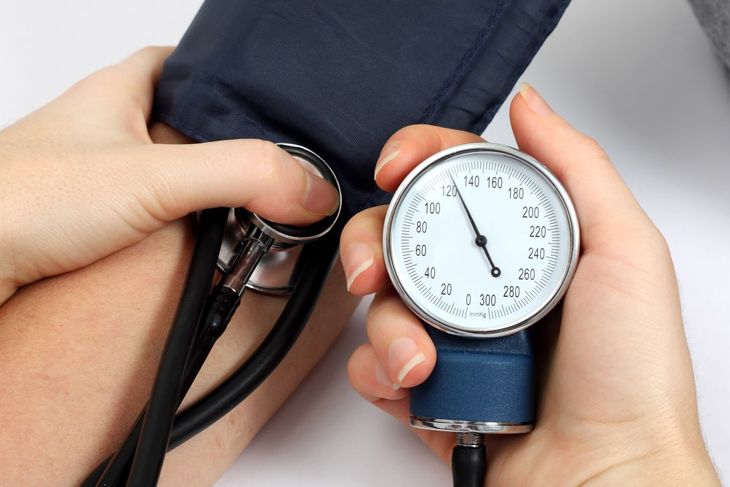Cushing’s syndrome develops when the body produces excess cortisol, a stress hormone, for a prolonged period. Long-term use of corticosteroids or an adrenal gland tumor is the most common cause. Cushing’s syndrome caused by medication can be cured with a gradual reduction of the problematic prescription if it is caught early. In general, the stage at which the disorder is diagnosed plays a significant role in prognosis. Promptly bringing the symptoms to a doctor’s attention can improve recovery.
Weight Gain
The most telling sign of Cushing’s syndrome is abnormal weight gain most noticeable in the face, chest, and stomach; cortisol causes the redistribution of fat to these areas. Individuals with Cushing’s syndrome develop central obesity, with thin limbs and a large belly, a moon face, and a lumpy fat deposit between the shoulder blades called a buffalo hump. Children with the condition become obese without consuming excessive food, and they grow more slowly than healthy kids consuming the same diet.
Changes in Skin
Cushing’s syndrome changes the skin’s appearance. Cortisol weakens blood vessels, causing them to break easily and the skin to bruise more frequently. Purple-pink stretch marks are also common, primarily on the stomach, breasts, buttocks, and thigh. Dark spots and patchy skin may also appear and recur, especially around the face. Skin aberrations such as cuts, bites, bruises, and scarring will take longer to heal.
Muscle Weakness and Aches
Most individuals with Cushing’s syndrome experience muscle weakness, aching, and wastage. Though muscle weakness usually occurs when the condition persists untreated for a significant amount of time, it can become highly incapacitating. Ordinary activities such as getting up from a sitting position may become difficult or cause pain, thus impeding routine functioning. The weakness is most pronounced in the shoulders, thighs, and hips.
Declining Bone Health
Excessive cortisol in the body suppresses osteoblast action, making individuals with Cushing’s syndrome susceptible to bone weakness and osteoporosis. Frequent backaches, pain in the bones and joints, and easy fracturing of bones in the limbs and hips are warning signs. Unfortunately, many people consider these symptoms as normal side effects of aging, and doctors may overlook them as such, as well.
Male-Pattern Hair Growth
Women with Cushing’s syndrome can develop male-pattern hair growth. When cortisol levels in the body are abnormally high, the hormones that stimulate hair growth also begin malfunctioning. This usually causes fast-growing and thick body hair — usually on the face, neck, and back — and excess and darker facial hair. Cushing’s syndrome can also lead to menstruation fluctuations.
Change in Sexual Habits
Cushing’s syndrome often leads to a change in male sexual habits. Loss of libido is a common issue, and many men also report erectile dysfunction. The condition may also diminish the reproductive capacity of both men and women. When the disease remains unchecked and untreated for a long period, infertility may occur.
A Humped Neck
A bump at the back of the neck called a buffalo hump sometimes develops in individuals with Cushing’s syndrome. This happens when excess body fat is stored behind the neck due to obesity and long-term use of steroidal treatments. The sudden appearance or growth of a lump in this area should prompt a medical examination.
High Blood Pressure
High blood pressure or hypertension is a potentially severe symptom of Cushing’s syndrome. Extremely high blood pressure can cause heart attacks and other cardiovascular issues. According to research, 80 to 95 percent of adults with Cushing’s syndrome have high blood pressure, though this symptom is less common in children and teens with the condition. Around 47% of children and adolescents with Cushing’s syndrome develop hypertension.
Depression
Cushing’s syndrome affects mental health, often causing people with the disorder to develop depression. Negative effects on mental health make dealing with a medical condition even more difficult and can hinder the management of other symptoms, as well. The visible signs of Cushing’s syndrome can further exacerbate depression and leave individuals feeling self-conscious about their changing bodies. This can lead to more hormonal fluctuations.
Miscellaneous Symptoms of Cushing’s Syndrome
A host of other symptoms are associated with Cushing’s syndrome. Fatigue and weakness are common, as is the deterioration of cognitive capabilities. Females with Cushing’s syndrome may have uncharacteristically unpredictable and irregular menstrual cycles, even to the point of having no period for several months. Cushing’s syndrome is also associated with glucose intolerance and sleep disturbances. Around 80% of individuals with Cushing’s syndrome develop type 2 diabetes.

 Home
Home Health
Health Diet & Nutrition
Diet & Nutrition Living Well
Living Well More
More




















